Stay in the know
All our latest podcasts delivered right to your inbox.
Teachers play a huge role in shaping the future of their students. And they often wear many hats in the classroom to provide the best learning experience for kids. Especially kids with learning and thinking differences.
In this episode, we speak with Kareem Neal, MA. Kareem is a special education teacher in Phoenix, Arizona. And he’s been teaching for more than 25 years. Listen as Kareem gives a glimpse into the classroom and explains:
The importance of partnership between teachers and parents
The impact this relationship has on kids
And what he wants parents to know about special education
Related resources
7 tips for building a good relationship with your child’s teacher
Perspectives: How to make sure families of color are heard by the school
Episode transcript
Julian: From the Understood Podcast Network, this is "The Opportunity Gap." Kids of color who have ADHD and other common learning differences often face a double stigma. And there's a lot that families can do to address the opportunity gap in our communities.
This podcast explains key issues and offers tips to help you advocate for your child. My name is Julian Saavedra. I'm a father of two and an assistant principal in Philadelphia, where I've spent nearly 20 years working in public schools. I'll be your host. Welcome to Season 3.
Hey OG family, welcome back to "The Opportunity Gap." It is Teacher Appreciation Week. Teachers getting appreciated. They should have Teacher Appreciation Year for the mess that we deal with. But teachers, they often wear so many different hats in the lives of the children they encounter. Not only do they support, they inspire, they motivate, they do so many different things. And I, for one, just don't believe they receive all the flowers they deserve. Like they deserve all the flowers we can give them.
So, we reach back into the hat of our history at "The Opportunity Gap," and we wanted to call in one of our original guests to the program and an amazing, amazing educator. So, we asked brother Kareem Neal to come on the pod. Kareem is an Understood expert and a special education teacher in Phoenix, Arizona. He was the 2019 Arizona Teacher of the Year, and I just found out in 2022, he was inducted into the National Teacher Hall of Fame. Amazing.
But he's going to be here to be sharing his experiences working with students, with learning and thinking differences, the challenges, the most rewarding parts, and breaking down what he wishes parents knew about special education. So, without further ado, welcome back to the show, Kareem.
Kareem: Thanks for having me. I'm excited to be here.
Julian: Yes. Thank you. Thank you for coming in. So, just thinking about, you're coming to us from school. He actually is in his classroom right now. The kids just left the classroom, and he's explaining to me how the weather in Arizona is beautiful right now. But I'm interested. Kareem, we always like to start out with, what brought you joy today? What brought you joy today in your life?
Kareem: So, today was a testing day. I explained to you earlier, but for the listeners, it was a testing day, which I don't think most teachers think of it as a joyful day. However, testing days, they typically give you a decent amount of extra time to make sure all kids can get through their test.
Julian: Yeah.
Kareem: I have less kids testing than most because some of my kids do alternate assessments and some of my kids take the standard state assessment, which is what today was. And so, after we finished, because we had a little bit of time, probably an hour before lunch, all of the paraprofessionals and teachers from the three self-contained classrooms, we were all just in a room together with all of the students from the three classes.
So, it's like 30 students and three teachers and 11 paraprofessionals. And we were all just bonding, talking about our Easter weekends, talking about school, talking about testing.
Julian: Yeah.
Kareem: It was really fun. And sorry, you're hearing our bells right now.
Julian: No, no, no. Like I said, this is authentic. And, you know, listeners, if you could see his face right now when he started talking about it, the smile is just, it's across the entire screen. So, I know that you love what you do, and that sounds dope.
Kareem: I do and I do like a lot of restorative circles, because I also am the restorative justice trainer in my district. And, you know, we do community circles a lot in my classes, in my clubs. However, having that many students and that many staff members, and obviously we weren't circled up. I don't have that kind of room in my classroom, but it felt like that, it was just everybody was sharing and kind of loving each other. So, it was a good day.
Julian: I love it, I love it. Thank you for sharing. So, listeners, Kareem has been an educator for 27 years. Right? 27 years?
Kareem: 27, yes.
Julian: 27 short years. He has another 27 in him, but. And you know, not only that, we talk a lot about the importance of our identity as educators. And Kareem identifies as a Black male educator, which I am as well. And the role of not only an educator, but a long time educator, but also a celebrated decorated Black male educator is incredibly important to point out. And so, Kareem, after all this time that you've been in the classroom as a Black male educator, can you tell us, like, what keeps you inspired?
Kareem: I think I always was most inspired from the students in my classroom who struggle the most with the content, but persist with questions. We were just joking about this today in class. I have a student who will ask 35 questions to make sure he understands.
But when I think about what it takes to say "I didn't catch it the first time, or the second or the 20th time, but I'm still going to keep trying to make sure I understand this," that is super motivating for me, because I tended to be a person who throughout life did things that I was good at, and so I typically am not struggling.
So, when I see folks persisting through that, I'm like, "Man, that's a skill that I don't practice often enough." So, when I see that, it is very inspiring. But lately I've been inspired by the new teachers who are just out here grinding.
Julian: Yeah.
Kareem: And toughing it out because a lot are not. So, the ones who are, I'm really excited about and I give them everything. I'm just like "Take all my time, my extra time, to keep you in this profession because I'm so worried about the shortage." It's like, it's truly worrisome to me now.
So, right now, the young teachers who are, and young teachers, they come with all of the different thinking mindsets. They connect to students better because they're closer to age and they're and to see and I'm Gen X, a whole different generation than every student and half the staff. And so, I love seeing the young teachers who are go-getters, who are the future of the profession.
Julian: I love it, and that whole idea of persistence, right? Like that persistence, that resilience, especially in education now, in the environment and climate we are in across the country. I'm sure you know, that inspires me the same way it inspires you. Thinking about, you know, just being a classroom teacher. If you had to narrow it down to one thing, what do you think is the most rewarding part of the profession?
Kareem: Well, I mean, I think that one is going to be the answer that all people give it. You know, you actually see students grow in some way regardless. So, when I think about my students, you know, you see academic growth, of course, but you see personal growth and you see straight-up growth where it's like, "Oh, you were just a freshman who were coming up to my belly, and now you're up to my shoulders," you know.
So, seeing that growth, though, I think particularly of course academically but then socially for my students is so rewarding because I feel like I'm a part of it, you know, and I, I know that it's, you know, I'm part of a strong community which helps that happen, right? With my paraprofessionals, the parents of the students, as the students and I.
But, you know, seeing that growth is all the reward I need. And I think it keeps me...there's another thing I think keeps me in the classroom. It's I think I realize that students won't grow the way I want them to if I keep teaching the way I've always taught, even though I've been successful at it.
So, I taught, I've taught for 27 years, and I would say, you know, the beginning of my teaching career, like most, I struggled because I felt like I didn't know what I was doing. But then I found the sweet spot year five or something like that. I could have coasted. I was doing well. I usually had pretty solid behavior management techniques and things like that.
And so, I think, you know, looking for the kinds of challenges that help make sure that that progress keeps happening for different students in a different world. I have to stay tapped in to how students now think, not just how students thought when I started.
Julian: I love that because that's also modeling the type of mentality that you want your students to have, right? Like we're always learning, we're always improving. And you're at the top of your game, right? Like you, you've been recognized nationally, like you're in the Hall of Fame, like you're the one to go to teaching and you're still saying that you have to keep getting better and keep improving. I love that. I love that.
Kareem: I mean, that is the goal. I think this, you know, it's not like, you know, I play a lot of sports as well. I grew up playing football and basketball and things like that. And it's not the same though for me because I feel like the stakes are so high, right? And I feel like it's important that I, that I keep getting better.
Julian: Got it, got it. So, you know as, as we think about your own perspective, right? Like you've been in the game for so long and there's things that you know I think in general people need to hear fro somebody with your experience. And so, we ask you some things that, you know, you just wish people knew.
So, as I am also an educator — I'm no longer in the classroom — but I know that the journey itself has so many different challenges. Like the difficult parent-teacher relationships are usually at the top of a lot of lists of these challenges, right?
School budgets, I can tell you all about that. And I'm sure you know all about that very clearly. And obviously, an ever-evolving curriculum, like curriculum changes over the course of time. And so, Kareem, when we asked you, you know, thinking about a list of three things you wish parents knew about special education. What do you think it would be like? What do you wish people knew about special education specifically?
Kareem: First, I wish...now when we say parents, it does not have to just be the parents of students who have learning differences, it can be kind of the parent overall, right?
Julian: Yeah.
Kareem: That's what I'm thinking. OK, good. So, one thing I wish parents understood about how differentiated the learning is in special education classrooms, because I really think a lot of parents who have students and just a typical learning environment, it's, you know, the typical what we call gen ed or general education. I wish they knew how differentiated it is because I think they will want that.
And I think that if everyone understood how cool it is to have an IEP, Individual Education Plan, sorry, I just say those acronyms, Individual Education Plan.
Julian: Yeah.
Kareem: And how cool it is for me to say OK, like I teach economics right now. We've been teaching about, you know, income tax, right? I wish they understood how cool it is for me to say, "Oh, I can't just look at a standard book and just spit out the information. I got to know that, oh, this student needs to hear it this way, and this student needs to use an augmentative," whatever it is, right?
And I wish they understood how helpful differentiation would be for all students, because if so, if we found a way to make that more of the norm, we wouldn't be talking about, "Oh, why are special ed kids not able to be in general ed classes?" and things like that. It would just be all teaching because that's the kind of teaching that we need.
Julian: Right.
Kareem: So, I wish parents did understand how the differentiation worked and how deep it is.
Kareem: And how like there's legal, like there's legal rights that come along with that differentiation, right? If you have an IEP, there's legal rights that come with it, and we'll dig into that in a minute. But yeah, OK.
Kareem: Exactly. Another thing I wish parents knew is that teachers do want to connect with them. A lot of times it is they are young and overwhelmed with the workload. So, they're maybe not communicating the way you want them to. A lot of times they are intimidated by, you know, whether it be language gaps or cultural gaps and things like that.
But I did wish they knew that they want to, and so that it would be beneficial for all if both sides helped, the teachings, the teachers tried better ways to do that, but parents also tried better ways to connect to the teachers because they do want to connect. It is just that sometimes they have a hard time with just the job.
Julian: Yeah, the workload is not joke. Yeah, the workload is no joke.
Kareem: And sometimes they're a little bit intimidated. I have talked to a bunch of teachers when I do my, so I do restorative justice, and one of my trainings is implicit bias. That's in my restorative justice training. And so many teachers when they are in that safe space and they can talk about it, they do say, "Yeah, I don't know how to talk to my Black parents.
And I am freely admitting that right now. It is it is intimidating to me. I don't know what to do, right? I wish I could connect." And so, you know, we try and give them strategies. But, you know, I wish parents knew that they are trying and they want it because they know that is the best, they get the best possible outcomes of the parents are a strong part of...
Julian: One more wish. You got two, you got two.
Kareem: And the last wish is I wish that parents celebrated their schools like to everyone. So, I think one thing that happened when I started teaching is that everywhere I went and granted, I was in New Jersey, so it was also a different teaching environment like at New Jersey's, like about that life when it comes to education, right?
Julian: Right.
Kareem: But everybody loved the fact that we were teachers, right? So, it wasn't a thing that I thought we had to fight to make sure it stays. But now that is not the case. So, now I do feel like we're fighting for this respect that we used to just get. And I feel like parents would be really strong allies in the fight to kind of bring back that respectability, bring back the love that the whole country had for teachers. I think now somehow it became political. So, half the country has to dislike teachers and half the country has to like them.
But I think parents everywhere just said, "No, I'm going to celebrate my school because they're doing good things for my kids," because almost all parents, I think, feel that way. Almost all, right? Or else they go find another school that they like better.
Julian: Right.
Kareem: And so, if they celebrated their schools, I think it would it would go a long way towards that fight for that respectability, that we're looking for, that has been lost a bit.
Julian: Yeah. And I mean, I think part of that is that, you know, sometimes parents don't realize that teachers don't have as much power as they consider teachers to have. There's just a lot of curriculum that is put on teachers to instruct with. And a lot of times we don't have the power to control what we're teaching, right?
Like we we can choose how, but we don't necessarily have the control of the what. And I don't think parents fully realize how much school boards and or the school district administrators — even as an administrator myself — I don't have as much flexibility to help our teachers instruct the way that they might think they should.
Kareem: That's right.
Julian: I don't think parents fully understand that too. So, yeah, I hear you. And I'm not going to say we can get all these wishes. I'm not going to say you can do all of it, but let's at least break this down a little bit more, because I think your expertise is critical in this. And hearing from somebody that's doing it right now, like literally half an hour ago, you understand.
So, thinking about the special education piece, right? Like you've been a special education teacher for a long time, and you spoke about the idea of differentiation. And, you know, for our listeners, Kareem spoke about IEPs or Individual Education Plans, where there are legal rights that come along with that, right? There's legal rights that come with that.
And so, can you break it down a little bit more for people just so that they understand IEPs, child rights, like the whole gamut of what people need to know about that?
Kareem: Yes. So the IEP is such an important document. It's, you know, in my mind the most for a child in a special education program because it breaks down their strengths, their needs, their goals from the last year.
So, while my students do get grades based on the curriculum, they also have IEP goals that they have met. And the beauty of it is we didn't get to discuss that at the meeting. It was like, you know, "Wrote this goal. This is how we tried to help get there across the finish line. This is what your child did to get across the finish line."
Julian: Yeah.
Julian: "Didn't quite get there. This is the route we're going to go." Or "Totally got there. This is the next step," right? Talks about the transition. So, I'm in high school. A lot of my students are going to graduate. A lot of my students are going to graduate, you know, in either four years or one year.
And so, their transition plan is saying, OK, are they going straight to work? Are they going to a day program? Are they going to do an extra year of high school before they graduate? Because there's some needs that weren't met quite yet, and we think that it is still a thing that they need to be in.
And so, this document, I mean, it shows the way they're going to go, how they're getting there, what the teachers' part was, what the therapists', if they have therapists, occupational therapists, speech therapist, whatever, what the child's part is, what the parents part is, and we're all there together kind of making this happen.
So, when, if I'm in at the meeting and I'm saying, you know, "I think next year would be great for this child to have a goal on writing personal information to fill out job applications." You know, the parent might be like, "Oh no, no, no, no, no. Maybe he's not showing you that at school. He's already showed me that at home. Here you go." Right? And so it was like, "Oh, perfect, " that we won't do something like that, right?
And so, having a team come together to kind of create the best learning plan for a child and the best transition plan for a child is kind of, it's a beautiful thing. That's why I said I wish all students in schools can have that, because I think everybody needs that kind of personal care. It's like a personal care document. It is showing all that we've done, all that we want to do, all that the child has done, all that the child wants to do, and how we get there.
And it's one of the few times that people are all in a meeting not because something went wrong or something like that, almost all of the meeting it's kind of a celebration of the child, right?
Julian: Yep.
Kareem: Just what you're doing well. "Is this program not right for you? Cool, you're going up the next level," or whatever, and it's really great.
Julian: I wish that, you know, we could have that breakdown for every family that's entering into special education, because the way that you use the language of beauty, the language of teamwork, the language of celebration, the language of transition plan, it just really shows that it's not this punitive thing.
And in fact, it's an addition thing. It's something that it's a team effort, right? And that the legal document part of, it just ensures that people are going to do what they say they're going to do.
Kareem: That's right, that's right.
Julian: All right. That's wish number one. Let's let's go to wish number two. You talked a lot about the workload. Now, if you're like me, right? I have a lot of friends that we grew up together, and they're not teachers, like they're not educators. And unless you're in it, you don't know what it really feels like to be in a school, right?
Like unless you step foot in school and stay there for a long time — not just like "I'm visiting for the day. Oh, this is so bad"... no. You got to do this for 180 days and you got to do this for years. You really don't have a concept of what it feels like to be an educator in 2024.
So, talk to us about that. And again, I'm an administrator now. I'm not even a classroom teacher anymore. But I want to hear from you. Tell us about the workload and how challenging it can be to keep up with everything.
Kareem: Yeah, I can't affront. I would say that the workload is not even something that's even sustainable for much longer than 180 days or even that time. So, when I started in the profession, like many teachers, I had extra jobs and it prevented me from being as effective of a teacher.
Because right now, man, when I go home, I am planning on whether it be in my head or straight up on my couch, on the computer, planning for quite some time because it's a job, one of the few jobs in the world, when we all think about this out there, that you are doing the job way more than you're doing the planning. Or if you're not, you are then doing the job all day, right? All night as well.
Because most jobs, it's like, okay, most of it is, "Oh, we planned all week for this one-hour meeting we have with the client," right? "We practiced all week for this four-hour football game," right? And those kinds of things, right? Most jobs you are, you're planning for the job so you can do it right.
Our job is different in that we are constantly doing this job all day and we get an hour planning period, I think, our, 50 minutes for us. I would hope that most teachers get around that amount of time during the school day, but that is not enough.
And so, pretty much everybody is working either before school or after school. If you're a morning person, maybe you are wake up at 5:30, get to school at six, and work for two hours before your kids get there. If you're not a morning person like me, you are on your couch in the evenings doing that planning because if you want to be effective, you have to put that much time into it, right? Because you do want to plan for something before around the amount of time you're doing that something.
Usually, you plan for something way more than the amount of time you do it. But we don't have that luxury. It is tough. It is really, because you're not just thinking about academic achievement, which is already difficult because of things like how you have to differentiate instruction, right? How you have to get through content, how you have to do testing like I had to do today, right? That takes away days of content and how many activities there are. But you also have to worry about management of the classroom, special ed classrooms.
Here's paraprofessionals to make sure they're OK and to make sure they understand how to deliver what needs to be delivered. It is just a lot that goes on in the average classroom, and it is just not really something that you can knock out. And the 9 to 5, I think most schools are probably closer to 8 to 4 or even 7:30 to 3:30.
Julian: What is the day, like a typical Tuesday, look like for Mr. Neal? Like, you know, what time you wake up? What do you do? And then talk...what does that look like? Let's break it down for the day.
Kareem: I wake up at 6:45. Fortunately, I live close to school, so I am a do-every-single-thing-at-night person.
Julian: OK.
Kareem: Including my clothes are being pressed, my lunch is being made, I'm taking a shower. Everything is ready so I can roll out of bed, brush my teeth, wash my face, and go to work. Work starts at 7:30 and then you are planning, right? So, you're planning for the day. For me, I come in, I get the board ready because the board has to schedule, it has the standards that we're working on.
Julian: Yeah.
Kareem: And so, we get ready that way. I, you know, clean the desk if the desk need to be cleaned. Organize my desk, organize their desk, organize that. There's a big cabinet over there that has all their work. Samples and things like that. They come in and then, that you can't... if you have never taught a classroom for me to explain what it feels like to teach a classroom, uff! It is, you are on completely.
So, I always tell people, the beauty of my job and the toughness of my job is that I actually think for almost all of the day, there's not that many jobs where after 27 years and after 180 days of school year, you're still there thinking all day, how am I doing over in this? Are they catching it? I'm watching that student over there, seems to be a little bit lost, time to backtrack and go over some different parts of that lesson. All right, but time is running out. So, we got to get to maybe the written part or the typing part, and it is, that is what your mind is constantly...
Julian: It's like 10,000 decisions in an eight-hour period.
Kareem: This student is looking like they might need the nurse. Did they eat this morning? Because he just rolled in. Like it is just your mind is…
Julian: Boom, boom, boom, boom. Yeah.
Kareem: All day, all day, all day. The lunch comes and I eat lunch with a good friend of mine. He's been teaching here for 18 years. I've been at this school for 17. So, we will then completely decompress and try not to speak of school, because we know the bell is going to ring quick. Our lunch is 40 minutes, which I found out actually it counts as long.
Julian: Oh wow.
Kareem: I was like, "Wow, I heard the people out here eat in 20 minutes." So, scarfed the food down because we know the rest of the day it's going to be like that. You're thinking, thinking, thinking, thinking, thinking. And then for my class, we have to make sure there bathrooms, take them to buses. And then the same thing. Then me and the paraprofessionals get together. Talk about today, right?
Julian: OK.
Kareem: What students do we need to make sure we're looking out for certain things from? You know, how, what things went well today? What things didn't go well? So, we decompress until, when the students leave is like 2:45 and I get to go home at 3:30, and I usually do go home at 3:30 because I bring my computer, I like to work at home.
Julian: OK. OK.
Kareem: I like to work in here.
Julian: And how much work do you typically do at home? Like about how much time?
Kareem: I would say if you had to average it, you would, I would say two hours a night. But I think I'm kind of a binge worker at home. I'm kind of a, like last night because there was like basketball games on the NCAA women's basketball, it was like, you know, six hours of games last night, I probably was on a computer for like seven hours, right? Just grinding, grinding, grinding.
And tonight it'll be one hour. It will be two hours, right? And tomorrow, probably one hour, because I got a chance to kind of catch up and breathe a little bit.
Julian: But y'all heard that, right? Like this, again, I'm going to keep going back to highly effective, highly celebrated teacher. And he's still putting in sometimes seven hours outside of the classroom. And, you know, on the low end, maybe an hour.
Kareem: The low end is an hour. I cannot not do that.
Julian: And, you know, I wanted to ask that and I appreciate, thank you for, you know, walking us through that. But I think just encapsulating what the workload really is in terms of you have to have a passion to do this work. And as you speak about it, not once, what is, it wasn't a complaint. It wasn't a "I can't believe this is like this." This was just, this is what I've chosen to do and this is what comes along with the work.
And so, I just, I appreciate that so much because it really, it goes to the bottom of what we need people to understand. This is not easy work. It's not for the faint of heart. And if you want to excel for our students, you have to put the work in.
You know, you talked a lot about how it's important for families to celebrate their schools and celebrate and have pride in the school experience. And I think a lot of that, especially for students with special education services, it comes from the families feeling like they know what's going on when they feel like they have an idea of what's happening, and they're better equipped to abdicate for their kids needs. And, you know, really helps open this line of communication.
So, as you're thinking about, you know, the challenges that you mentioned, what do you think is just the role that those things play in a parent-teacher relationship? Meaning, if a family knows that the workload is no joke, how might that lead to a healthy parent-teacher relationship?
Kareem: The hardest part about that question is, I remember when we started teaching online, when COVID first happened, and, you know, there was almost like this national chatter about how "Oh parents are seeing how hard it is to do this job." And I actually did believe that was going to happen.
And it was like, "Oh, parents are going to see it and it's going to be amazing, and we're all going to be on the same page." And it didn't happen like that. But I do think if, you know, like, for instance, I felt like if all parents could listen to this conversation like, "Oh, he's out here grinding like that? These teachers are all hard working like that?" And "Oh, when he thinks of my child and differentiate, he is not bothered by that at all.".
It's just a lot of things that has to be done. "When these new teachers out here are contacting us enough, maybe it is because they're working on other jobs and things like that." So, I do wish that there was a way to convey these messages, because I think it would cause them to say, "Oh, that's what's happening there." There's this understanding.
Just like, I think a lot of teachers apart, particularly my friends, I don't have any children, but teachers, when they have children, they're just like they understand also the feeling of parents, right?
Where it's like, "Man, that teacher doesn't seem to be getting the job done. I'm on it." You know what I'm saying? And I wish there was a way for all of us to kind of communicate with each other, that thing. And that's why I think community building is important. Which is why it has been my jam, which is why I love restorative justice, is I get to do that community building with parents.
So, the parents of the students in my class, they are the parents who are out there saying, "No, no, these teachers are doing great things. No, no, this job is really hard and we need to help in whatever ways we can."
But I do think that is not just going to happen automatically. Because people, they do listen to talking points. And like I said, it's been a bit politicized. So it's a little bit trickier sometimes now. But I do wish there was an understanding of the heaviness of the job and how hard it is to do all the things and not forget one thing and not be the thing that causes a person to say, "Oh, this teacher forgot this thing. He don't care."
Or something like that. I think if parents had the opportunity to truly talk to teachers and understand their workload, they would be out here stumping for us as well. They would be out here saying, "No, no. Give them what they need because it is very difficult to do what they do."
Julian: Yeah. And, you know, I think the idea of empathy is, is such a, it's a simple idea, but it's so, so important, right? Because you might not be in it yourself, but to at least have that patience of, you know, understanding that there's all these things that are happening and the desire is there to do right, right? Like we're dealing with people's babies, right? And I am a parent. I do have children.
And I do understand when I speak with my children's teachers, like, you know what? They might not respond to my email immediately, but I know that they're going to see it. They're going to get me back at some point.
And you know what? Maybe I'm going to bring a little extra coffee and maybe a little extra snacks, just like not during Teacher Appreciation Week. I might do that, like in December in the grind of the wintertime, because I know that's what I would want too. I would want somebody to just say that they see me, they understand it, and they recognize the work I'm trying to put in.
I think our families just have to, you know, give a little grace. And we as teachers and educators also have to give grace to our families, too, right? We have to like you said, it has to be a two-way street. You know, man, I could sit and chat with you forever about this, like, because I feel like your perspective is so needed and the fact that you're in the classroom and you just literally did it and you're going to get up and do it again.
Kareem: That's right.
Julian: You know, I just, I celebrate the fact that you chose to take some time out of your day to talk to us about what you do and the things that, you know, I think people need to know and understand from somebody that is really in the midst of the work. So, I just want to personally say, you know, I've watched your work from afar. You came on our show when we first started, and we've definitely grown since we were with you. We've blown up a little bit in a good way.
But we always go back to thinking about you specifically as a Black male educator that's a long-time educator, but also a long-time special education educator, which I think is really rare but really important.
And I just want to celebrate the work that you do, the passion that you have for the work. The fact that we're sitting here talking and you're smiling the whole time, after a long day like that. After you worked seven hours last night. I just, I hope our listeners understand this man is a gem, and he really is doing the work inside. I just appreciate your brother. I really, really do. Thank you.
Julian: Thank you. I appreciate you. And thank you for those words. They do mean a lot. All of those words, like when you were saying, all parents come in and bring that coffee, I was like, I wish they would do that for these teachers out here.
I remember when I started, you know, winning awards, I was like, "Man, I wish my colleagues could feel this because I think it can help a lot of people get through some of those tougher times," where, you know, a lot of times we're not hearing it. And so, yes, it is nice to hear it. So thank you very much.
Julian: Listeners, you know, before we head out, as always, we have a bunch of resources to share, so we will definitely link them in the show notes. Until next time, OG Family. Thank you so much, Mr. Neal. I appreciate you.
Kareem: Thank you.
Julian: "The Opportunity Gap" is produced by Tara Drinks, edited by Daniella Tello-Garzon, and Ilana Millner is our production director. Our theme music was written by Justin D. Wright, who also mixes the show for the Understood Podcast Network. Laura Key is our editorial director, Scott Cocchiere is our creative director, and Seth Melnick is our executive producer. Thanks for listening and see you next time.
Host
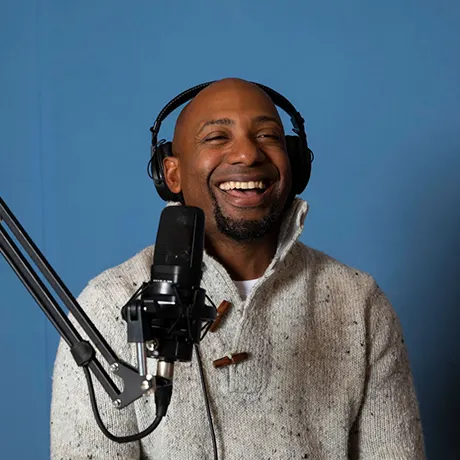
Julian Saavedra, MA
is a school administrator who has spent 15 years teaching in urban settings, focusing on social-emotional awareness, cultural and ethnic diversity, and experiential learning.
Latest episodes
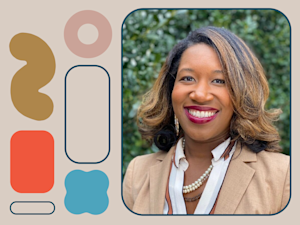
April 10, 2024
Myths and misinformation about ADHD and learning differences show up all the time on social media. Find out what’s fact and what’s fiction, and learn about the impact of these myths on kids of color.
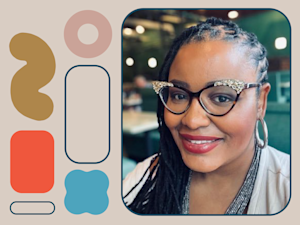
March 27, 2024
ADHD advocate René Brooks was diagnosed with ADHD twice as a child. But it wasn’t until she was diagnosed again as an adult that she finally got support. Listen to her story.
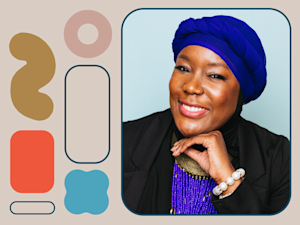
March 13, 2024
Learn about the steps to getting an IEP and starting your child’s special education program. Get tips from an expert.

February 14, 2024
Learn how four members of the Understood team are making an impact in the lives of people with learning and thinking differences.
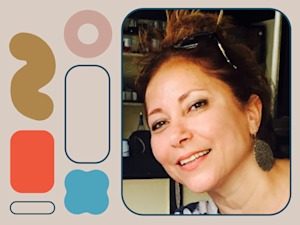
January 31, 2024
How can high-schoolers and their families prepare for life after high school? Get advice and tips from a college advisor.

January 17, 2024
Some kids don’t like to share information about their school day. Get tips on how to get them to open up and share. These tips and conversation starters can help your child to open up.
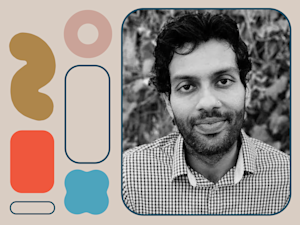
January 3, 2024
The school-to-prison pipeline has disrupted education for kids of color for a long time. Learn what the pipeline is and why it’s critical to end it.

December 6, 2023
Telling your relatives about your child’s challenges can be difficult. Get tips on how to make the talk easier to manage.

November 8, 2023
For some students of color, feeling mistreated by teachers is a common experience — and it shouldn’t be. Learn how to help kids self-advocate.
